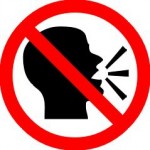 A New York Times (NYT) Sunday article featured Mario Batalli, chef, cookbook author, television personality talking about working in his kitchen. His philosophy and communication style as leader is that you do not have to shout to work with each other.
A New York Times (NYT) Sunday article featured Mario Batalli, chef, cookbook author, television personality talking about working in his kitchen. His philosophy and communication style as leader is that you do not have to shout to work with each other.
The culture in the kitchens of many restaurants is to yell to communicate. The high pressure, time sensitive, noisy environment lends itself to this.
On Tuesday, August 28, acclaimed chef, Charlie Trotter, was featured in the Chicago Tribune because his restaurant is closing on Friday. He discussed what he did to change the atmosphere and talked about chefs who became famous but may have paid a high price for that fame.
So, here we have two celebrated chefs, successful leaders in their own field and businesses, with two different styles. One style was forged twenty some years ago and the other is relatively current.
The questions to answer are what works best for you, does it benefit you and do you learn from it?
 In a recent Shark Tank episode some folks were not successful in making a deal with the team of investors. I was amazed at the naivety of some of the individuals who needed funding and how unprepared they seemed to be to obtain what they needed financially. I think that unless you are a seasoned business person or have the fortitude to know how to swim with the sharks – don’t get in the water. You might not be able to walk away whole.
In a recent Shark Tank episode some folks were not successful in making a deal with the team of investors. I was amazed at the naivety of some of the individuals who needed funding and how unprepared they seemed to be to obtain what they needed financially. I think that unless you are a seasoned business person or have the fortitude to know how to swim with the sharks – don’t get in the water. You might not be able to walk away whole.









